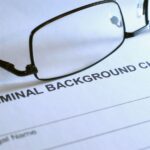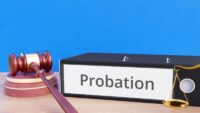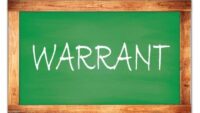There are several ways to buy a new gun in the US, from dedicated firearm stores to your local Walmart or other retailers or gun shows. And depending on where you live, you can also buy a new gun in private.
For most gun sales, though, the seller must conduct a background check on the buyer to ensure that the firearm will be in the hands of a safe person of sound mind. And while it’s a bit of a hassle going through a background check, it’s completely understandable given the dangers of the alternative.
And while you could buy a gun from your friend or acquaintance in certain states without going through all the checks, most people must pass it first.
So if you want to learn more about firearm background checks, their evolution over time, and how to conduct one on yourself, keep reading this article.
The Short Answer
All firearm sellers must have a Federal Firearms License (FFL), which requires them by federal law to conduct background checks on prospective buyers. And they must conduct these checks via the federal government’s National Instant Criminal Background Check System, or NICS, which is only available to FFLs.
Most people quickly pass this background check. But those who fail usually do so because of a record that disqualifies them, such as a violent crime conviction or addiction.
So if you want to cut some time, check your criminal record for the common disqualifying records, such as:
- Crimes punishable by more than a year in prison
- An addiction to a controlled substance
- A domestic violence conviction or restraining order
- An involuntary commitment to a mental health institution
Other things that can fail you the background check include being a fugitive from justice at large, under indictment, illegal alien, renounced citizen, or dishonorably discharged military officer.
Brief History of Firearm Background Checks
The US saw several unfortunate events in the 1960s related to gun violence, such as the University of Texas tower shooting and the assassinations of public figures like President John F. Kennedy, Attorney General Robert Kennedy, and civil rights activist Dr. Martin Luther King Jr.
Therefore, the US government started tackling the issue of gun violence in the late 1960s, starting with the Gun Control Act of 1968, which restricted gun purchases to people who could be trusted with a deadly weapon.
The act achieved this restriction by requiring all firearm vendors to obtain a Federal Firearms License following an extensive background check on every vendor.
In 1993, the government enrolled another update to the Gun Control Act through the Brady Handgun Violence Prevention Act, named for the White House Press Secretary Jim Brady, who was shot in an assassination attempt on President Ronald Reagan in 1981.
The Brady Law required all Federal Firearms Licensees, or FLLs, to run a background check on their potential buyers and only complete gun transactions if they pass the check through the ATF’s National Instant Criminal Background Check System, or NICS.
Can I Run an NICS Firearm Background Check on Myself?
Unfortunately, the ATF’s NICS is only available to Federal Firearm Licensees. As such, private persons can’t run the check on themselves to save time.
However, you can predict whether or not you’ll pass the NICS check by indirectly checking for the same points that the NICS does, such as criminal history.
In other words, you’d be manually checking if you have any disqualifying records in your criminal history, which are clearly defined in federal law.
And while this is a more laborious method, it’s as close as you can get to a firearm background check on yourself.
Federal Prohibitions on Firearm Owners
To save time, we’ve collected the records that automatically disqualify you from buying a new gun from the United States Code. Specifically, under 18 U.S.C. § 922, also called unlawful acts, in subsection (g).
1. Previous Convictions
Those convicted of a crime punishable by more than a year in prison are automatically disqualified, meaning almost all felony convictions and many misdemeanors.
2. Fugitives From Justice
Fugitives from justice are those who are fleeing from the law. Of course, if you’re knowingly evading a legal punishment, you’re barred from many services, let alone buying firearms.
Surprisingly, there are many people evading arrest who walk into gun stores and try to buy weapons. And sometimes, they’re arrested on the spot.
Fugitives from justice are only those who willingly avoid arrest. If there’s an arrest warrant on you, but you don’t know about it, then you’re not a fugitive from justice.
3. Addicts of a Controlled Substance
Those who take controlled substances illegally (without a prescription) are barred from possessing firearms. Addicts and controlled substances are defined more thoroughly in 21 U.S.C § 802.
To cut a long story short, most drugs, like marijuana, cocaine, and opiates, are controlled substances, but alcohol and tobacco aren’t.
4. Mentally Illness
Disqualifying someone for mental illness sounds very broad. But in reality, most mental illness diagnoses won’t disqualify you.
But if you’ve recently been declared mentally unsound by a judge or forcibly admitted to a mental health institute, you’ll likely be disqualified.
5. Illegal Residents
Legal foreigners are allowed to buy guns. But illegal or unlawful aliens, and those with a nonimmigrant visa, such as tourists, aren’t allowed to.
6. Dishonorable Discharges
If you’ve been dishonorably discharged from the US Armed Forces, that’s an automatic disqualification since it usually means you’ve committed a serious violation in the army.
7. Renounced Citizens
By renouncing your US citizenship, you agree to renounce all your rights as a US citizen, including the Second Amendment rights.
8. Violent Restraining Orders
If you have a restraining order for a violent crime like domestic violence, the law sees you as dangerous to someone else and will bar you from possessing guns.
9. History of Misdemeanor Domestic Violence
Domestic violence is an instant red flag in firearm background checks. A person convicted of abusing their spouse, intimate partner, or child is barred from buying firearms.
Related Posts
 How Long Does It Take to Get a Warrant?
How Long Does It Take to Get a Warrant? How to Find Out Why Someone Was Arrested
How to Find Out Why Someone Was Arrested How Long Does a Misdemeanour Stay on Your Record?
How Long Does a Misdemeanour Stay on Your Record? How Long Does Shipt Background Check Take?
How Long Does Shipt Background Check Take? How Far Back Does a Level 2 Background Check Go?
How Far Back Does a Level 2 Background Check Go?![The Best Background Check Softwares For Dating [Our Reviews and Comparison]](https://backgroundhawk.com/wp-content/uploads/2021/02/5-min-150x150.jpg) The Best Background Check Softwares For Dating [Our Reviews and Comparison]
The Best Background Check Softwares For Dating [Our Reviews and Comparison]![Best Landlord Background Check [Our Reviews and Comparisons]](https://backgroundhawk.com/wp-content/uploads/2021/02/Best-Landlord-Background-Check-min-150x150.jpg) Best Landlord Background Check [Our Reviews and Comparisons]
Best Landlord Background Check [Our Reviews and Comparisons] How To Clear A Probation Violation Warrant
How To Clear A Probation Violation Warrant How Long Does It Take to Recall a Warrant?
How Long Does It Take to Recall a Warrant? How Do I Know if I Passed My Background Check?
How Do I Know if I Passed My Background Check?

